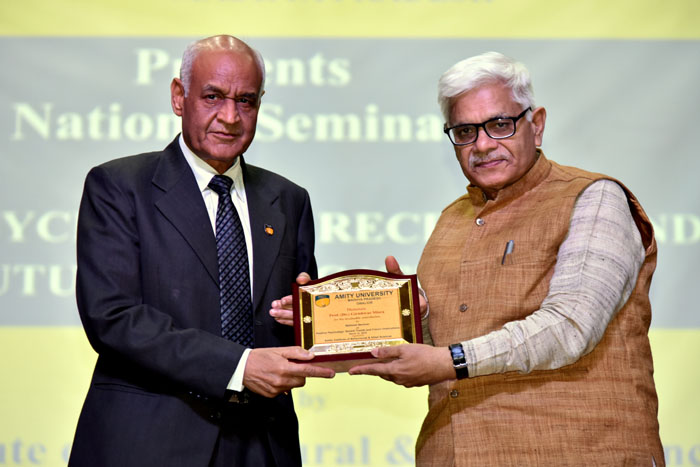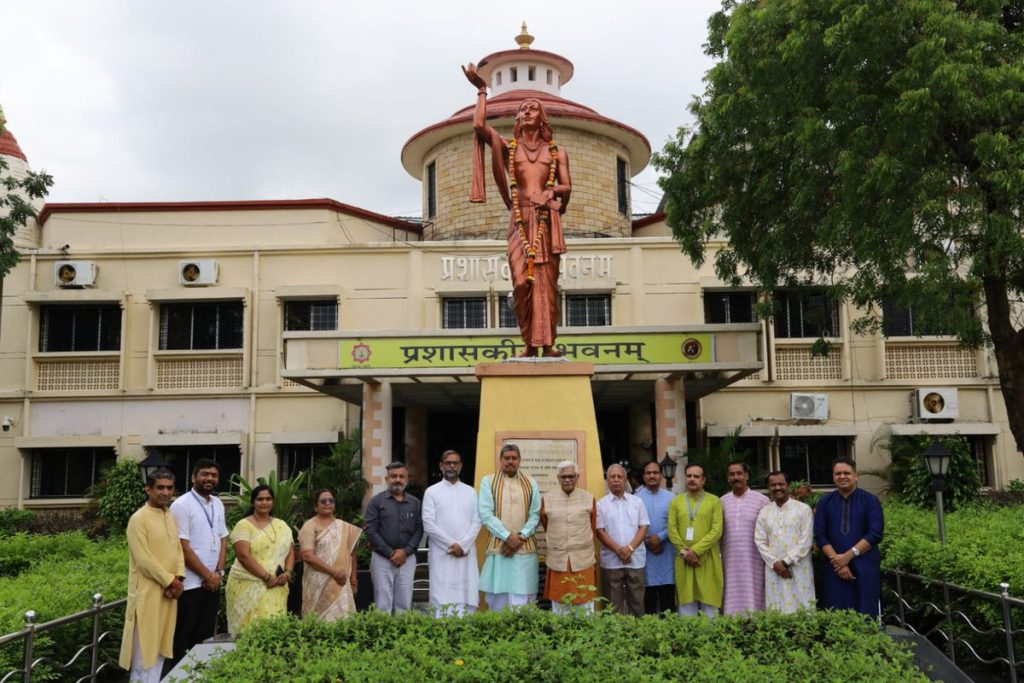Contents
Introduction
Girishwar Misra is a distinguished Indian psychologist known for his contributions to the field of cultural psychology and the study of indigenous psychological practices. His work has significantly advanced our understanding of how culture shapes human behavior, cognition, and emotions. Misra’s research has also highlighted the importance of incorporating indigenous knowledge and practices into mainstream psychology. His contributions have had a profound impact on psychology, education, and public policy in India and beyond.

In this article, we will explore Girishwar Misra’s contributions to cultural psychology and indigenous psychological practices, examining how his work has deepened our understanding of the interplay between culture and human behavior, cognition, and emotions.
Early Life and Education
Girishwar Misra was born on April 20, 1951, in Varanasi, Uttar Pradesh, India. Growing up in a culturally rich and intellectually stimulating environment, Misra developed an early interest in understanding human behavior and the cultural factors that influence it. His parents, both educators, encouraged his curiosity and fostered a love for learning. This supportive environment laid the foundation for his future academic pursuits.
Image Source: Dr. Girishwar Mishra, Hon’ble Vice Chancellor, Mahatma Gandhi Antarrashtriya Hindi Vishwavidyalaya, Wardha addressing the gathering

Misra’s interest in psychology was sparked during his undergraduate studies, where he was particularly fascinated by the interplay between culture and human behavior. This fascination led him to pursue advanced studies in psychology, with a focus on cultural and indigenous perspectives. His academic journey was marked by a commitment to exploring the unique psychological traditions of India and integrating them into the broader field of psychology.
Educational Journey
| Aspect | Details |
| Early Education | Misra attended local schools in Varanasi, where he developed a strong foundation in the humanities and social sciences. |
| Banaras Hindu University | Misra earned his Bachelor of Arts degree in Psychology in 1971. |
| University of Allahabad | Misra pursued his Master’s and Ph.D. in Psychology, focusing on cultural and indigenous psychological practices. |
| Academic Career | After completing his doctorate, Misra held academic positions at various institutions, including the University of Delhi and the Indian Institute of Technology Kanpur, where he has been a professor and a key figure in promoting cultural psychology. |
Timeline of Early Influences
| Aspect | Details |
| Durganand Sinha | Sinha’s work on indigenous psychology and cultural perspectives significantly influenced Misra’s approach to psychology. |
| John Berry | Berry’s research on cultural psychology and cross-cultural studies provided a foundation for Misra’s investigations into the role of culture in shaping human behavior. |
| K. Ramakrishna Rao | Rao’s work on parapsychology and Indian psychological traditions inspired Misra’s interest in integrating indigenous knowledge into mainstream psychology. |
| Jitendra Mohan | Mohan’s contributions to sports psychology and human performance influenced Misra’s interdisciplinary approach to psychology. |
Major Theories and Works

Cultural Psychology
Girishwar Misra is best known for his contributions to cultural psychology, a field that examines how cultural contexts shape human behavior, cognition, and emotions. Key elements include:
- Indigenous Healing Practices: He has also studied indigenous healing practices, emphasizing the importance of culturally relevant approaches to psychological care and the integration of traditional knowledge into modern therapeutic practices.
- Cultural Context: Misra’s work highlights the role of cultural context in shaping how individuals think, feel, and behave, suggesting that psychological processes cannot be fully understood without considering the cultural environment.
- Well-Being: Misra’s research investigates how cultural factors contribute to well-being, examining both positive and negative influences of cultural practices on mental health.
Image Source: psychology.iresearchnet.com

Indigenous Psychology
Indigenous Psychology
Girishwar Misra has significantly contributed to the field of Indigenous Psychology, which focuses on understanding psychological concepts and practices from within specific cultural contexts, particularly those that are non-Western. Key elements include:
- Integration of Traditional Knowledge: Misra’s work supports the integration of traditional knowledge and healing practices into psychological frameworks, valuing indigenous wisdom as a legitimate and essential component of psychological understanding.
- Cultural Relevance: Misra advocates for the development of psychological theories and practices that are culturally relevant, ensuring that they resonate with the values, beliefs, and traditions of indigenous communities.
Image Source: kindredmedia.org

Positive Psychology and Well-Being
Girishwar Misra has contributed to the understanding of positive psychology, a field that focuses on the study of positive emotions, strengths, and factors that contribute to human flourishing. Key elements include:
- Holistic View of Well-Being: His work supports a holistic view of well-being that integrates emotional, psychological, and social dimensions, acknowledging that these aspects are interconnected and influence overall life satisfaction.
- Cultural Context in Well-Being: Misra emphasizes the importance of considering cultural contexts when studying well-being, recognizing that concepts of happiness and fulfillment can vary across different cultures.
Image Source: linkedin.com

Indian Psychology
Indian psychology explores psychological concepts and practices rooted in the cultural, philosophical, and spiritual traditions of India. Key elements include:
- Philosophical Foundations: Indian psychology is deeply influenced by ancient Indian philosophies, such as Vedanta, Yoga, and Buddhism, which offer unique insights into consciousness, self-realization, and mental well-being.
- Holistic Approach: The field incorporates a holistic view of the mind-body connection, recognizing the interplay between physical health, mental states, and spiritual practices in achieving overall well-being.
- Meditative Practices: Techniques such as meditation, mindfulness, and yoga are integral to Indian psychology, focusing on self-awareness, inner peace, and mental clarity as essential components of psychological health.
Image Source: psychologs.com
Psychologists Influenced by Misra

- K. Ramakrishna Rao – Rao’s work on parapsychology and Indian psychological traditions has been influenced by Misra’s research on cultural and indigenous psychology (Rao, 2002).
- R. C. Tripathi – Tripathi’s studies on social psychology and cultural factors in India draw from Misra’s insights into cultural contexts and human behavior (Tripathi, 2013).
- Anand Prakash – Prakash’s research on well-being and positive psychology has been shaped by Misra’s work on the role of cultural values and social support (Prakash, 2015).
- Jitendra Mohan – Mohan’s contributions to sports psychology and human performance have been informed by Misra’s interdisciplinary approach and emphasis on cultural contexts (Mohan, 2010).
- Ashok K. Srivastava – Srivastava’s work on organizational behavior and cultural psychology has been influenced by Misra’s research on indigenous knowledge and cultural perspectives (Srivastava, 2016).
Impact on Psychology
- Influence on Modern Thought: Girishwar Misra’s ideas have had a profound impact on various fields within psychology, including cultural psychology, indigenous psychology, and positive psychology. His research on the cultural underpinnings of human behavior, cognition, and emotions has transformed our understanding of how psychological phenomena are shaped by cultural contexts. Misra’s work has also influenced research methodologies, promoting the use of culturally sensitive approaches to investigate psychological processes.
- Contributions to Related Fields: Misra’s interdisciplinary approach has extended his influence to areas such as education, public policy, and community development. His insights into cultural values and well-being have informed educational practices, emphasizing the importance of culturally relevant curricula and teaching methods. In public policy, Misra’s research has contributed to the development of interventions aimed at promoting mental health and well-being, particularly in culturally diverse settings. His work has also influenced community development initiatives, highlighting the role of cultural understanding in addressing social issues and promoting development.
Legacy and Influence
Long-Term Impact
Girishwar Misra’s legacy endures through his lasting contributions to psychology and related fields. His pioneering work in cultural and indigenous psychology has laid the foundation for numerous subsequent theories and research. Misra’s emphasis on integrating cultural perspectives into psychological science continues to influence contemporary research and practice in these fields. His ability to communicate complex scientific ideas to both academic and public audiences has made him a key figure in promoting cultural sensitivity and inclusivity in psychology.
Recognition and Honors
Misra has received numerous accolades and recognition for his work. He has served as the president of the National Academy of Psychology (India) and has been a significant contributor to various academic journals and conferences. Misra has also received several prestigious awards for his contributions to psychology, including the Lifetime Achievement Award from the Indian Academy of Applied Psychology. His efforts to promote cultural and indigenous perspectives in psychology have been widely acknowledged and celebrated.
Criticism and Controversies
While Girishwar Misra has garnered significant recognition for his contributions to psychology, his work has not been without criticism. Some argue that his focus on cultural and indigenous perspectives may overlook the universal aspects of human behavior and cognition. Additionally, integrating indigenous knowledge into mainstream psychology poses methodological and practical challenges. Despite these criticisms, Misra’s pioneering research and advocacy for cultural sensitivity continue to inspire debate and further investigation in the fields of psychology and beyond.
Conclusion
Girishwar Misra’s life and work have profoundly shaped the fields of psychology, particularly in the areas of cultural psychology, indigenous psychology, and positive psychology. His theories on the cultural underpinnings of human behavior, cognition, and emotions offer valuable insights into how cultural contexts shape psychological phenomena. By emphasizing the importance of integrating cultural and indigenous perspectives into psychological science, Misra has provided a comprehensive framework for understanding and addressing social issues and promoting well-being. As his legacy continues to unfold, Misra’s contributions to psychology and public engagement will likely inspire future generations of researchers, educators, and practitioners.
Bibliography
- [1] Berry, J. W. (1997). Immigration, Acculturation, and Adaptation. Applied Psychology, 46(1), 5-34.
- [2] Glick, P., & Fiske, S. T. (1996). The Ambivalent Sexism Inventory: Differentiating hostile and benevolent sexism. Journal of Personality and Social Psychology, 70(3), 491-512.
- [3] Mohan, J. (2010). Sports Psychology: Emerging Horizons. New Delhi: Friends Publications.
- [4] Misra, G. (1989). Psychological Consequences of Prolonged Deprivation. New Delhi: Concept Publishing Company.
- [5] Misra, G. (2005). Cultural Foundations of Indian Psychology. New Delhi: Pearson Education India.
- [6] Misra, G. (2011). Handbook of Psychology in India. New Delhi: Oxford University Press.
- [7] Misra, G. (2014). Psychology and Societal Development. New Delhi: Springer.
- [8] Misra, G. (2017). Psychological Perspectives on Stress and Health. New Delhi: Sage Publications India.
- [9] Prakash, A. (2015). Positive Psychology: Applications in Work, Health, and Well-Being. New Delhi: Pearson Education India.
- [10] Rao, K. R. (2002). Consciousness Studies: Cross-Cultural Perspectives. Jefferson, NC: McFarland & Company.
- [11] Tripathi, R. C. (2013). Social Psychology in India: Evolution and Emerging Trends. New Delhi: Sage Publications India.






